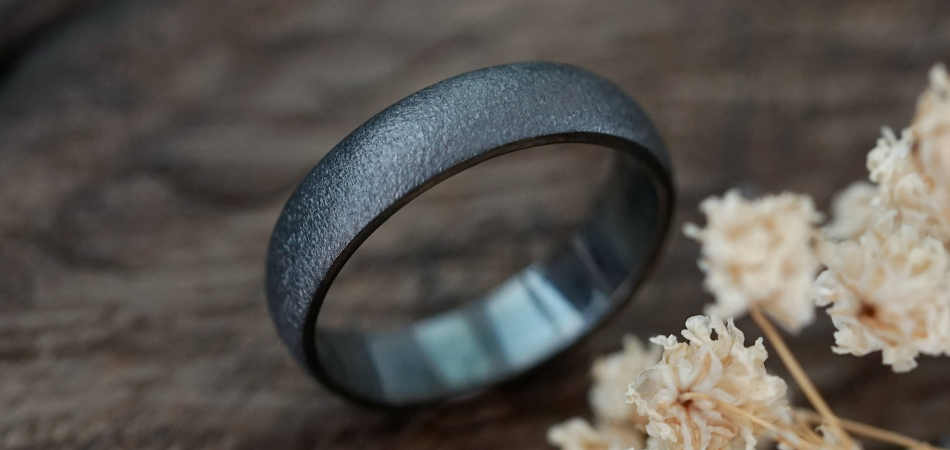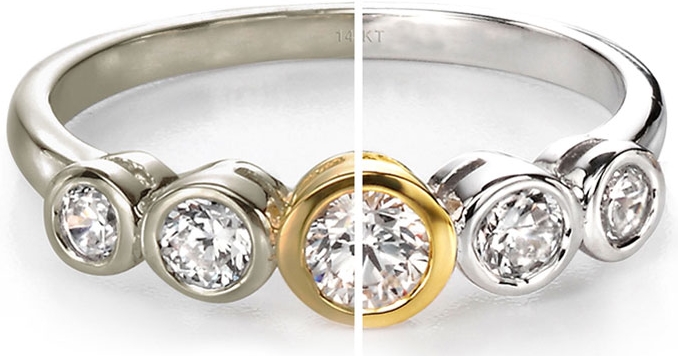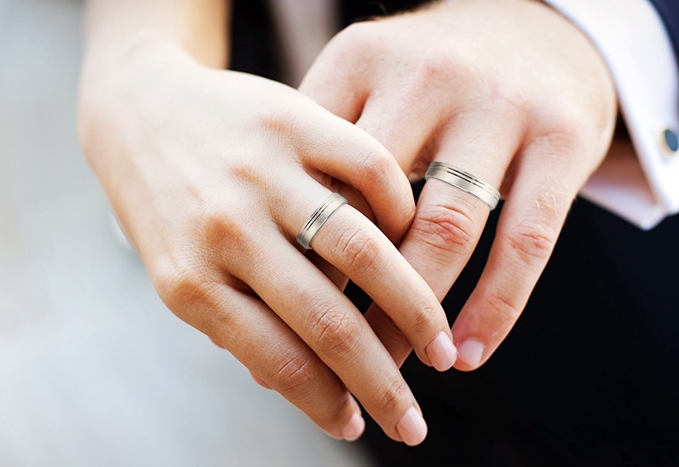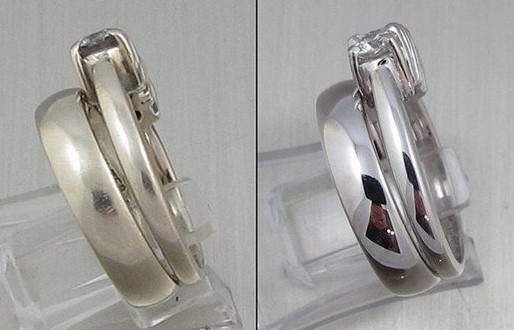Rhodium is a solid and hard metal customarily used to coat other metals and materials like jewelry to increase their life span and enhance durability. Due to its qualities, it may be used for jewelry, magnets, and plating. And while some claim it does last longer, does rhodium rust?
Yes, rhodium is expected not to rust because it is a noble metal that is resistant to corrosion. However, Rhodium rusts at very high temperatures, but it doesn’t rust naturally at room temperature.
Rhodium is the rarest precious metal and is one of the most expensive ones. While it is not likely to rust easily, it is good that you find the best way to protect your rhodium-plated jewelry. The best way is to polish it as soon as you notice that its surface has changed.
With the information on this page, you will get to know more about rhodium and the perfect way to keep it safe for a longer period.
Contents
Can Rhodium Tarnish?
Rhodium does not contain nickel, so it cannot tarnish. It is highly resistant to corrosion and cannot rust. Also, rhodium cannot tarnish because of its durability, and it does not form an alloy with any other metal like copper that can corrode and deposit dark green spots (patina) on your accessories over time.

What Can Rhodium Plating Do?
Rhodium is a rare, silvery-white metal that has a high level of reflection. When rhodium is used to coat or plate accessories like jewelry, it will enhance the strength of the underlying metal used in the production of the jewelry.
Even though rhodium is a fine and the most expensive metal in the world, it cannot be used to produce beautiful jewelry the way gold, silver, and diamond can be used due to its brittleness and fragility when used alone. i.e. it can easily break or crack when used without mixing with another metal.

Rhodium plating on metals like silver and gold prevents scratches on them, and can also sharpen the beauty of a diamond by making the dull white gold on it brighter.
Does Rhodium Plating Last?
You must have known and believed till now that rhodium plating is permanent, but the truth is that with time, it will wear off and you will need to recoat your jewelry or accessory with more rhodium.
Aside from that, the rhodium plating can take about twelve to eighteen months before it wears off, other factors will also determine how long it will last.

Some of these factors are:
- Type and Color of the Underlying Metal: Even though rhodium does not tarnish, you may see some tarnishing on, for example, a yellow-colored ring when the rhodium plating starts to wear off.
- The rhodium plating on it may last for about six to nine months only, after which you will start noticing the original yellow color of the ring showing at the back of the ring.
- The Thickness of the Rhodium Plating: The heavier and thicker the rhodium plating finishing on metal is, the longer and more durable the plating will be and vice versa. Increase the thickness of the rhodium plating if you want it not to wear off easily.
- Usage Level of the Underlying Metal: How long you wear your rhodium-plated accessories and what you use them for determines the period the plating will last. The more you wear and use the accessory, the faster the plating wears off.
- Inner Body Activities of the User: If you own an accessory with rhodium plating, your inner body chemistry can also make the plating wear off more easily as a result of your skin excretions reacting on the metal.
Note: Before a new rhodium plating is applied on an accessory, the old one must be completely removed, together with the scratches until the underlying metal is seen.
How To Make A Rhodium-Plated Material Last Longer?
Here are three major ways through which you can enhance and increase the usage period of your rhodium-plated materials and make them last longer.

- Avoid rubbing: Things like rubbing your hands together can make the rhodium plating on an accessory like a ring start wearing off. So if your job requires that you always rub your palms together or wash your hands regularly, rub your palms together in a mild way while doing that, or you can remove the ring entirely and put it back after work.
- Avoid strong chemicals: If you’re using strong or heavy chemicals, always remove your accessories before you start working because some chemicals can react with the rhodium plating on them, and make it start to wear off.
- Avoid metal-to-metal rubbing: The rhodium plating on accessories that are loose and always moving is more prone to wear off. You might not notice it during the initial stage, but with time, it will become noticeable if the accessory shifts from its normal position.
You should always purchase accessories that fit the body part you want to put it on and remove it as soon as it gets loose, to preserve the rhodium coating on it from wearing off.
Can Rhodium Plating Cause Allergies?
One advantage of rhodium is that it is non-reactive and reflective, meaning that it cannot cause allergies.
Regardless, it’s vital to note that once the rhodium plating on an item’s surface wears off and the underlying metal is exposed, you might start experiencing allergies.
For example, if you are allergic to nickel and you are wearing a white gold ring, if the rhodium plating wears off, you’ll develop allergies because nickel mixed with gold is used to make the silver color of white gold.
Final Words
Rhodium can resist rust because of its high rust-resistance level, and high level of reflection.
Use this metal to coat your accessories so that you will enjoy the durability and enhanced life span it gives.

